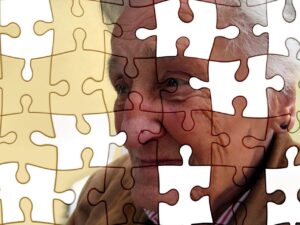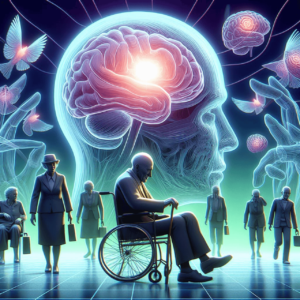Contents
- 1 Introduction
- 2 Introduction to Dementia Training Australia (DTA).
- 3 Type and effectiveness of training
- 4 Benefits of training and its effects
- 4.1 How does training for (DTA) Dementia Training Australia help improve care for dementia patients?
- 4.2 What changes have been observed after training DTAs in the healthcare sector?
- 4.3 How does this training help caregivers reduce emotional and physical stress?
- 4.4 What are the long-term benefits for trainees?
- 4.5 Challenges and limitations
- 4.6 What are the main barriers to dementia training Australia?
- 4.7 How can training for DTAs be made more accessible and effective?
- 4.8 Is it possible to improve Dementia Training Australia using advanced technology (eg VR or AI)?
- 5 Government and private enterprises
- 6 Prospects and recommendations
Introduction
Dementia is a complex mental health condition that is gaining increasing attention in Australia’s healthcare sector. For caregivers and healthcare professionals, having the right knowledge and skills to care for individuals living with dementia is crucial. To address this need, various institutions across Australia offer Dementia Training Australia programs designed to enhance professional competence and improve patient care. In this blog, we’ll explore why dementia training is essential, what types of courses are available, where to find them, and how they can positively impact your career in the healthcare industry.
How common is dementia worldwide and in Australia?
Dementia is currently an important public health problem worldwide. According to the World Health Organization (WHO), approximately 55 million people worldwide are affected by dementia, and approximately 10 million new cases are diagnosed each year.
In Australia About 4 lakh 20 thousand people are suffering from dementia, which is one of the leading chronic diseases in the country. By 2058, this number may increase to over 8 lakhs. Dementia is the second leading cause of death in Australia and the biggest health risk for women. Hence the need for awareness and training about this disease is increasing day by day.
Why is the need for training to care for patients with dementia increasing?

Dementia patients gradually lose their memory, lose decision-making ability, and have trouble performing daily tasks. As a result, Caring for patients becomes difficult for family members or professional caregivers without proper training.
Through Dementia Training Australia caregivers and healthcare workers can learn—
✅ How to handle mental and physical changes in the patient.
✅ How to properly address behavioral changes (e.g.: aggression, confusion).
✅ Advanced communication skills, to communicate well with the patient.
What steps should be taken to ensure patient safety?
How important is dementia awareness for the general public and professionals?
Raising awareness about dementia is very important as it affects not only the patient but also his family and the people around him. If awareness increases—
✔ Timely diagnosis is possible, which increases the quality of treatment.
✔ Positive attitude is developed in family and society, and compassion for patients increases.
✔ Access to proper care and treatment is facilitated, because everyone takes the matter seriously.
✔ Dispel misconceptions about dementia, as—it’s not just an aging problem.
In Dementia Training Australia (DTA) And various public and private organizations conduct regular campaigns to make common people and professionals more aware of dementia.
Introduction to Dementia Training Australia (DTA).
What is the history and rationale behind the establishment of DTA?
Dementia Training Australia (DTA) A national training organization funded by the Australian Government, which works to improve the skills of healthcare workers in caring for patients with dementia.
Reason for establishment:
The number of Dementia Training Australia patients is increasing rapidly.
🔹 Many healthcare workers do not have adequate skills to properly care for dementia patients.
Professionals need better training to improve the quality of life for patients.
🔹 Creating a friendly society for dementia patients by raising awareness.
DTA in 2016 was Formed under the Government’s Dementia Training Australia Program (DTP). It is run by five major universities in the country and offers online and offline training.
Who can take this training?
Training of DTA is Open to various professionals and the general public, especially—
✔ Nurses and doctors, who treat patients directly.
✔ Caregivers and health workers, who take daily care of dementia patients.
✔ Social workers and counselors, who provide emotional and social support.
✔ Family caregivers, who want to take care of their family members.
✔ ordinary people, who want to be aware of dementia.
Is DTA training free or is there a fee?
Most of DTA’s training is free, as it is funded by the Australian Government. However, for some special courses or certification programs Nominal fee may have
of DTA Free Training Program:
✅ Online Courses (with videos, text, quizzes)
✅ Live webinars and workshops
✅ Interactive guides and resources
Of DTA Paid Training Program:
🔹 Direct training of experts (Face-to-Face Workshop)
🔹 Certificate courses (which help in career development)
What are the important modules covered in DTA training?
In the training of DTA, Various important modules are included, which help caregivers and professionals improve their skills.
🔸 Basic knowledge about Dementia: Disease types, causes, and symptoms.
🔸 Patient Behavior Management: Understanding and coping strategies for abnormal behavior.
🔸 Communication Skills: Communicate and understand patients empathetically.
🔸 Safety and Health Protection: How to keep the patient safe
🔸 Guidelines for Family Caregivers: Proper care and emotional support for family members.
🔸 Use of modern technology: Training using VR and digital tools.
These modules Help improve the quality of life of dementia patients by enhancing the skills of health workers and the general public.
Type and effectiveness of training
What is the core of DTA’s training?
Dementia Training Australia (DTA)Training of Based on various important factors, so that the participants Can acquire proper skills to care for dementia patients.
Key topics:
✅ Basic Knowledge of Dementia: Disease types, causes, symptoms, and progression.
✅ Understanding and managing patient behavior: Strategies for managing anxiety, aggression, and confusion.
✅ Communication Skills: Communicate patiently and empathetically with dementia patients.
✅ Safety and Health: Assisting the patient in daily activities and creating a safe environment.
✅ Clinical Care: Medical support, medication management, and healthcare development.
✅ Support for Family Caregivers: How the family can care for the patient.
✅ Technology and Dementia Care: Training using modern digital tools (VR, Apps).
These things are Directly taught through real-life case studies and interactive training, which makes trainees proficient in real situations.
Which is more effective online and in-house training and why?
DTA Provides both online and in-house (live) training, but which will be more effective depends on the needs of the trainee.
Advantages of Online Training:
🔹 Convenient: You can learn according to your own time.
🔹 Accessible: Training can be done from anywhere.
🔹 Quality education at low cost: Courses can be taken without travel expenses.
Benefits of in-house training:
🔸 Real Experience: Direct hands-on training is available.
🔸 Direct communication between instructors and students: There is more opportunity to question and understand.
🔸 Development of Practical Skills: Direct opportunity to work with patients available.
For those who want to learn hands-on work, in-house training is more effective. And for those who want to save time and money to learn, online training is good.
How does this training prepare participants for real-life situations?
DTA’s training directly teaches solutions to real-life problems.
✔ Case studies and real-life examples: Helps to understand the behavior of patients in real life.
✔ Interactive Workshop: Hands-on teaching of how to care for patients.
✔ Simulation and VR Technologies: Skills are enhanced by simulating real situations.
✔ Testing and Evaluation: At the end of the training the skills of the participants are verified.
How does (DTA) Dementia Training Australia training improve the skills of individuals or organizations?

DTA’s training is not just personal skills but helps improve the performance of the entire organization.
✅ Personal Development:
🔹 Career growth opportunities are created by increasing skills.
🔹 It is possible to provide better care to patients.
🔹 Increases caregiver confidence and stress management.
✅ Organization Development:
🔸 Improved quality of service for patients in hospitals and care centers.
🔸 Improved work environment and patient satisfaction for trained staff.
🔸 Effective use of new technologies in the healthcare sector is possible.
With the training of DTA The skills of professional nurses, caregivers and doctors are enhanced, which leads to the overall development of the health sector.
Benefits of training and its effects
How does training for (DTA) Dementia Training Australia help improve care for dementia patients?
Training of DTA It plays a major role in improving the quality of life of patients.
✔ Compassionate and efficient patient care: Trained caregivers can provide better care to patients.
✔ Advanced Behavior Management: Helps reduce anxiety, confusion, and depression in patients.
✔ Safe and Healthy Environment: The physical and mental health of patients can be ensured.
✔ Quality of life: With proper care, patients can lead comfortable and happy lives.
What changes have been observed after training DTAs in the healthcare sector?
After undergoing the training of DTA Significant changes have occurred in the healthcare sector:
✔ The quality of service in hospitals and care centers has improved.
✔ New techniques are being implemented in the treatment and care of dementia patients.
✔ Increased patient self-reliance and recovery rates.
✔ Increased competence and confidence of health workers.
How does this training help caregivers reduce emotional and physical stress?
Caring for dementia patients Very hard and mentally stressful job. However, DTA training brings some benefits to caregivers—
✔ Reduces stress at work: Understanding the behavior of patients reduces stress.
✔ Stress management teaches: Patience and calmness are taught through training.
✔ The support network is made up of: During the training, there are opportunities to exchange experiences with other caregivers.
✔ Increases work efficiency: Facilitates work by teaching patient management techniques.
What are the long-term benefits for trainees?
DTA’s training is long term Enhances the career and skills of trainees.
✔ Increases Professional Skills: Health workers acquire advanced technology and skills.
✔ Job opportunities increase: Well-trained people are in high demand.
✔ Relationships with patients are better: Caregivers understand patients better.
✔ Increases the quality of healthcare: Patients’ quality of life improves, which benefits society as a whole.
Challenges and limitations
What are the main barriers to dementia training Australia?
Training is very important to provide better care for dementia patients, however There are several barriers to training DTAs in Australia.
✅ Lack of Awareness: Many health professionals and families still do not understand the importance of Dementia Training Australia.
✅ Mental barriers: Some caregivers feel that caring can be achieved through experience in addition to training.
✅ Financial Constraints: Some hospitals and care centers do not have adequate budgets for training.
✅ Lack of adequate trainers and resources: Skilled trainers are scarce, especially in remote areas.
✅ Technical Challenges: Not all health workers adapt easily to online training.
✅ Time crunch: Long hours of training are difficult for busy health workers.
More awareness campaigns, free training programs, and increased use of technology are needed to remove these barriers.
How can training for DTAs be made more accessible and effective?
Some steps can be taken to make the training of DTA more accessible and effective—
✔ Online and Mobile-Based Training: Making training easy through smartphones.
✔ Free and Government-Aided Training: Extending free training to remove economic constraints.
✔ Direct On-the-Job Training: Providing on-site training in hospitals and care centers.
✔ Customized Training Program: Creating separate training modules for people of different professions.
✔ Shorten and implement the training period: Provide more effective training in less time.
Taking such an initiative will allow DTA training to reach more health workers and the general public.
Is it possible to improve Dementia Training Australia using advanced technology (eg VR or AI)?
Yes, The use of advanced technology can make Dementia Training Australia more realistic and effective.
🔹 Virtual Reality (VR):
✅ Caregivers through VR technology Experience the patient in a virtual environment.
✅ Simulating real-world situations makes training more interactive and effective.
🔹 Artificial Intelligence (AI):
✅ AI-based training module Can tailor training according to individual skills.
✅ AI Chatbot or Virtual Assistant Can understand patients’ behavior and answer trainees’ questions.
🔹 Augmented Reality (AR):
✅ Adds virtual elements to the real world It is possible to teach proper methods of caring for patients.
Increasing the application of these technologies Training of DTA will become more effective and practical.
Government and private enterprises
How does the Australian Government support DTA’s activities?
DTA completely A national training organization funded by the Australian Government. The Government supports this training as follows—
✔ Dementia Training Program (DTP): Govt Provides regular funding for conducting training of DTAs.
✔ Research and Development: Grants are awarded for research into dementia treatments and training.
✔ National Awareness Campaign: Dementia campaigns are carried out at the government level.
✔ Policy Support in the Health Sector: Dementia care policies are improved.
✔ Training Resources: Free online courses and training materials are provided.
As a result of these initiatives by the government, DTA has been able to expand its training programs.
How are NGOs and charities involved in DTA’s training?
a lot of Non-governmental organizations and charities are associated with the training of DTA, they help as follows—
🔹 Financing: Some organizations provide grants for research and training.
🔹 Training Conduct: Some organizations train their employees through DTA.
🔹 Volunteer Activities: Some organizations send volunteers to assist caregivers.
🔹 Dementia Awareness: Non-governmental organizations provide an opportunity to the public by conducting awareness programs.
Dementia Australia, Alzheimer’s Australia, and various private hospitals and care centers are associated with this training.
How advanced or backward is Dementia Training Australia system compared to other countries?
Australia is well advanced in dementia training, but there are still challenges in some areas.
✅ Where Australia is ahead:
✔ Government-funded free training facilities.
✔ Use of world-class research and advanced technology.
✔ Combination of online and offline training.
❌ Where lag:
🔸 Training is less common in rural areas.
🔸 Not all professionals yet take training as mandatory.
🔸 Technologies not yet fully utilized (eg VR, AI).
However, Australia’s training system is competitive and superior compared to countries like the UK, Canada, and Sweden.
Prospects and recommendations

What might the future of dementia training Australia look like in the next 5-10 years?
To come In 5-10 years, dementia training Australia will become more modern and technology based. Advances in research and technology can lead to some important changes—
✅ Technical Training: Training will be made more realistic using VR (Virtual Reality) and AI (Artificial Intelligence).
✅ Personalized Training: Customized courses will be launched as per the needs of caregivers.
✅ Online and Mobile App-based Training: Training can be done easily through smartphones.
✅ Certified and Mandatory Training: Training may be mandatory for hospitals and care centers.
✅ Greater public-private investment: Government grants and corporate partnerships to improve dementia care will increase.
If these improvements are implemented the quality of care for dementia patients will improve and the efficiency of healthcare workers will increase.
How can DTA improve the training program?
The following steps can be taken to further improve the training program of DTA—
✔ Technology Development: Creating opportunities to provide real experiences using VR, AI, and AR (Augmented Reality).
✔ Course Customization: Introducing separate training modules for different professions (eg: doctors, nurses, family caregivers).
✔ Opportunities for direct experience: Increased opportunities to work directly with patients during training.
✔ Certification and Career Opportunities: Providing specialized certificates and job opportunities to those who will undergo training.
✔ Low-Cost Training: Providing free or low-cost training to people in remote areas.
These improvements will help make DTA’s training more effective and accessible.
How can the general public be made more dementia aware?
To raise awareness about dementia Various types of initiatives can be taken:
✅ Social Media Campaign: Raising awareness about dementia in simple language through Facebook, YouTube, Instagram, and TikTok.
✅ School and Community Workshops: Conducting free workshops in schools, colleges, and community centers.
✅ Government Initiatives: Running TV and radio ads through government campaigns.
✅ Research and Public Events: Organizing seminars and workshops on dementia.
✅ Free Online Courses: Providing free Dementia Training Australia in simple language for the general public.
Taking such steps will make the general public aware of dementia and behave more sensitively towards dementia patients.
What might the DTA model look like for countries outside of Australia?
Successful models of (DTA) Dementia Training Australia Implementation in other countries are also possible, but some things need to be changed—
🔹 Training in Local Language: Developing training materials in different country languages (eg: Bengali, Chinese, Arabic).
🔹 Public-Private Partnership: Conduct training in coordination with governments and NGOs in each country.
🔹 Low-Cost Training: Providing low-cost or free training for developing countries.
🔹 Culturally Appropriate Training: Develop training models that fit each country’s culture and health care system.
🔹 Online Based Training: There should be an opportunity to participate from any part of the world.
Following this model, It will also be possible to improve the quality of dementia care and training in countries around the world.
last word
In the next decade Dementia Training Australia (DTA) May introduce more advanced and technology-based training programs. Sensitizing the general public, increasing the use of technology and making training more accessible The quality of life of dementia patients will improve and the skills of caregivers will increase.

Hi, I’m bristly khatun from Bangladesh. I housewife and started a website. I love traveling around Australia. On HaleBoop.com, I share my simple travel stories and experiences from all over the country.
